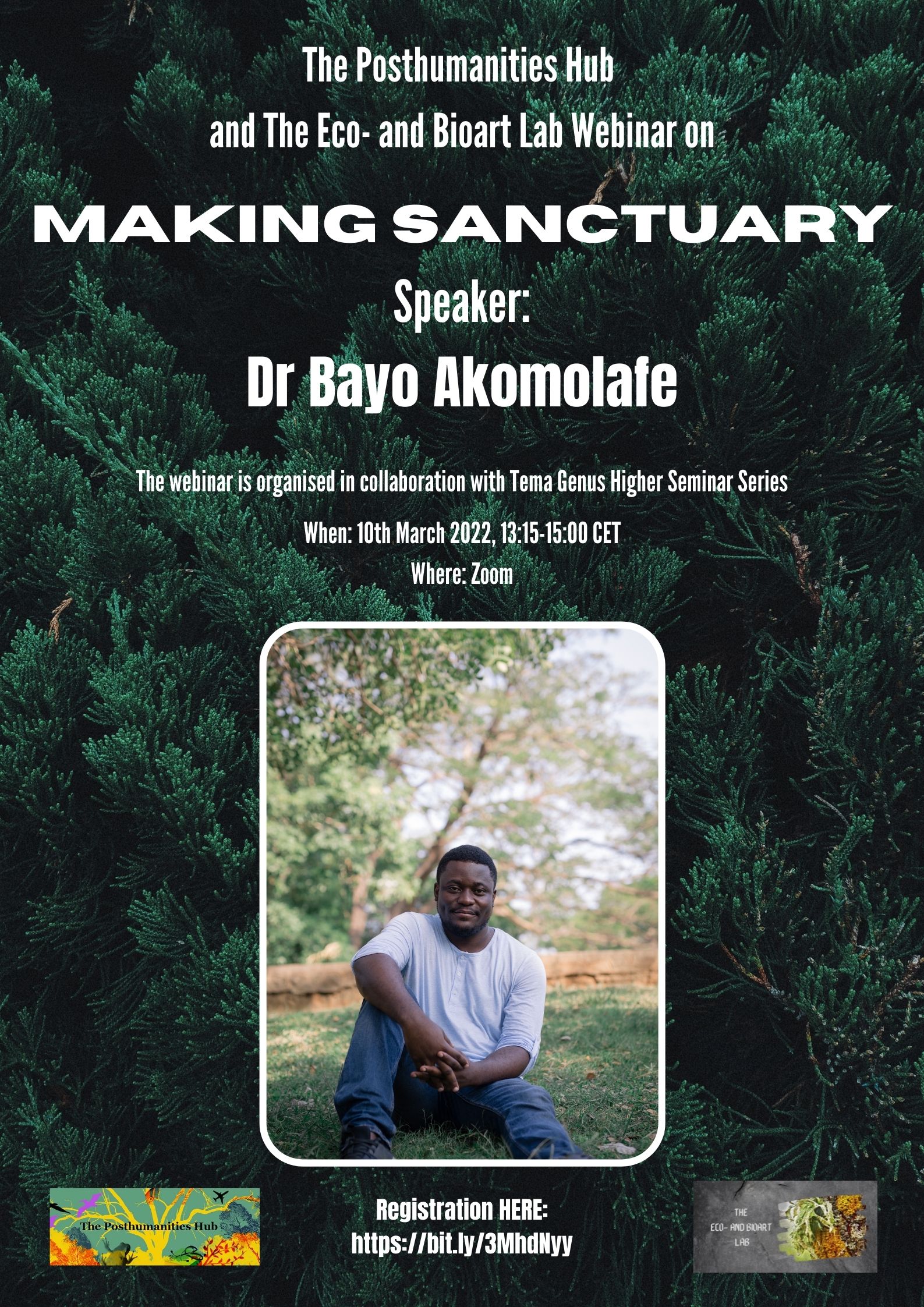-
ECO IS THE NEW SEXUAL: A Performative Transmedia Webinar
Welcome to The Posthumanities Hub Webinar: “ECO IS THE NEW SEXUAL: A Performative Transmedia Webinar” Date: September 7th, 2023, 10 a.m. PTZ, 7 p.m. CET […]
-
Posthumanities Hub – online group meeting 1 September, 13.15 hrs-15:00 hrs
Wow, we are growing as a research group! Exciting things may be lurking ahead – and challenges for extra-ordinary academics like us. This is why […]
-

PH & EBL Webinar on ‘MAKING SANCTUARY’ with Dr Bayo Akomolafe, 10th March 13:15-15:00 CET
We are pleased to invite you all to the upcoming Posthumanities Hub and The Eco- and Bioart Lab Webinar on “MAKING SANCTUARY” with Dr. Bayo Akomolafe. The event […]